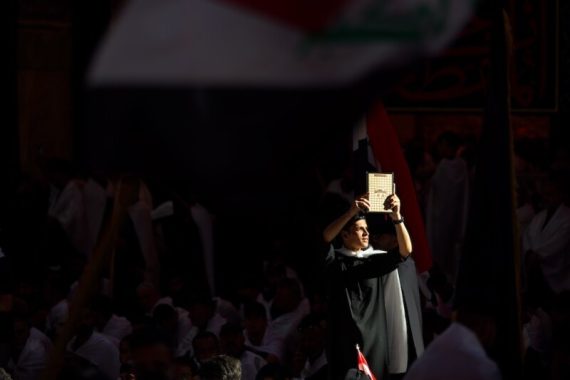W
estern Europe is currently experiencing a wave of public desecrations of the Quran. In the Netherlands, the leader of PEGIDA tore pages from the Quran and trampled them. In Denmark and Sweden, activists have on several occasions burned copies of the Quran in front of buildings belonging to Islamic organizations.
What is striking is that the authorities in these countries have acted as mere bystanders, claiming that they are powerless to deal with such activities. They argue that the desecration of the Quran is a reprehensible act, but that it is legal and therefore cannot be stopped. Swedish Prime Minister Ulf Kristersson recently said, “It can be legal and still be horrible.”
Many Muslims in the countries concerned and around the world are outraged by the authorities’ passive attitude and are calling on them to act. In July, the UN Human Rights Council adopted a resolution, introduced by Pakistan and Palestine, condemning such desecration and calling on states to close the legal loopholes that prevent them from tackling it.
Turkish President Recep Tayyip Erdoğan has been a vocal critic of the Swedish authorities’ refusal to stop such desecrations. This raises the stakes considerably, as Sweden’s accession to NATO has yet to be ratified by the Turkish parliament. President Erdoğan has indicated that this is unlikely to happen as long as copies of the Quran are being burned. Thus, the question of whether the Swedish authorities are right to claim that their hands are tied has become politically important.
Freedom of expression?
The Swedish authorities claim that rallies where the Quran is burned are protected by freedom of expression and therefore cannot be restricted, thus giving freedom of expression priority over other rights. However, Sweden is a party to the European Convention on Human Rights, which does not recognize such a hierarchy of rights. All rights in the convention are equal, and if they conflict, they must be weighed against each other. In the case of the desecration of the Quran, there is a conflict between freedom of expression and freedom of religion.
The European Court of Human Rights (ECtHR), in its judgment in E.S. v. Austria, has shown how the right to freedom of expression must be balanced against the right of others to have their religious feelings protected. The case concerned an Austrian politician who had been fined for making derogatory remarks about the Prophet Mohammed. She claimed that the fine amounted to an unlawful interference with her freedom of expression.
The ECtHR disagreed: it recognized that religious groups must tolerate criticism by others of their religious beliefs. However, if that criticism incites hatred or religious intolerance, restrictions are justified. The applicant’s offensive attack on the Prophet Mohammed went beyond the permissible limits of objective debate and her comments were likely to cause justified indignation among Muslims. The ECtHR reiterated that state parties have an obligation under the convention to maintain religious peace, i.e., the peaceful coexistence of religious and non-religious groups.
Recommended
ECtHR key judgement
It is not clear what is stopping the Swedish authorities from applying E.S. v. Austria to the desecration of the Quran. The verdict is not obscure: the ECtHR has described it as a key judgment, meaning that it has strong precedential value, and although the ruling concerned Austria, it is expected to be followed by all state parties, including Sweden. The ECtHR is the final authority on the interpretation of the convention and state parties are expected to apply the principles arising from its judgments.
The convention has been incorporated into Swedish law by an Act of Parliament and the Swedish Constitution prohibits the adoption of laws that contravene the convention. Thus, even if there were a law allowing people to burn the Quran, such a law would be contrary to the convention, which would render it null and void. The authorities also cannot avoid banning the desecration of the Quran by claiming that they have no express legislative authority to do so; Swedish courts have consistently held that the convention can serve as a legal basis for action in the absence of enabling legislation.
The Swedish government has announced that it has introduced legislation to tighten border controls in order to prevent the entry of persons who might endanger Sweden’s security interests. Presumably this is intended to silence fervent critics of Sweden’s hands-off policy; however, this is not how the ECtHR expects Sweden to maintain religious peace. The Swedish government has also indicated that it is considering changing the law to allow the police to prevent copies of the Quran from being burned in public. It need not look far: a simple application of E.S. v. Austria will suffice.





